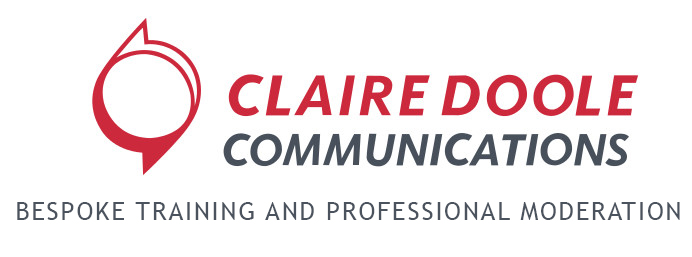“I am not really comfortable with storytelling. I don’t see how I can use it in my work”. This is a typical response from senior managers/executives to the idea of attending a storytelling workshop. And what’s more, I understand where they are coming from. As a BBC journalist, I was a professional storyteller – every day looking for the nugget of gold that I could mine to tell a story about something that had changed in the world.
But telling other people’s stories was much easier than telling my own. Journalists don’t like being the centre of the story – it makes them, among other things, feel vulnerable. What I have learned as a trainer, moderator and coach is that storytelling is about sharing experiences – either your own or someone else’s – so that you connect and build rapport, trust and credibility with those around you.
Research shows that our brains are hardwired to listen and to tell stories. Stories are how we think, make meaning of life and explain how things work. They help us make decisions, persuade others, create identities and teach social values.
In a business or organisational setting storytelling helps to sell, educate, inspire and motivate. It is a strategic tool that can bring you closer to your colleagues, clients and peers and transform how you and your organisation are perceived.
How to tell stories
All of the above holds true if the story is well told. It needs to have a clear structure so that it is easy to follow and relevant to the audience. In everyday life, we tell stories to our friends without necessarily drawing a morale or lesson learnt. If you are telling a story in a professional context you must always have a point.
In my workshops, I often tell a personal story about how I lost the equivalent of my annual salary when I first joined the BBC, due to poor advice by a former financial advisor in Geneva. He put me in funds that were far too risky for my investment profile, and which either collapsed or were suspended by the regulator. I explain how I then tried (and am still trying!) to expose his wrongdoing. I tell this story showing that there are different structures that you can use to achieve different impacts, as well as different rhetorical techniques to make it memorable.
It is a story that shows who I am – illustrating my values – trust, perseverance and quest for justice. It is a story that I could use to show people the type of person I am and why they should believe in me or want to work with me.
But it is also a story that can be used to teach a lesson – underlining the importance of assuming responsibility for your finances. I could also tell this story to motivate change by shedding light on what is wrong about the present way Swiss independent financial advisors are regulated and the need for tougher regulation.
Everyone is a storyteller
I hope that none of you have to tell a story like this, but if you are looking for a story, one of the simplest ways is to think about a key moment in your life – positive or negative – and reflect on the lesson learnt.
I also advise people to start to build a library of stories. Think about:
• Moments that made you who you are or who clarified your values
• Moments when you discovered your voice or leadership potential
• Difficult moments in business but worthwhile struggles or extraordinary feats
• Dangerous mistakes in business
• Stories of how your company handled the past
• Stories of how the future could look bright or dark
Start to catalogue stories that might serve as powerful illustrations of your ideas, register other peoples or institutional stories (anecdotes) that could illustrate a point you want to make or think about universal myths and fables that you can use as metaphors and analogies.
We are all storytellers but we are not always aware of it. Have the courage to tell a story and you will see that it can be your most valuable asset and even give you competitive advantage.
PS If you would like to know more about the story of my financial advisor, please email me. My purpose is naturally to warn you against using him!
PPS If you are interested in learning how to become a master storyteller, I run two courses – on public speaking and on storytelling in business.
Please get in touch by email or book a 30-minute discovery call.

